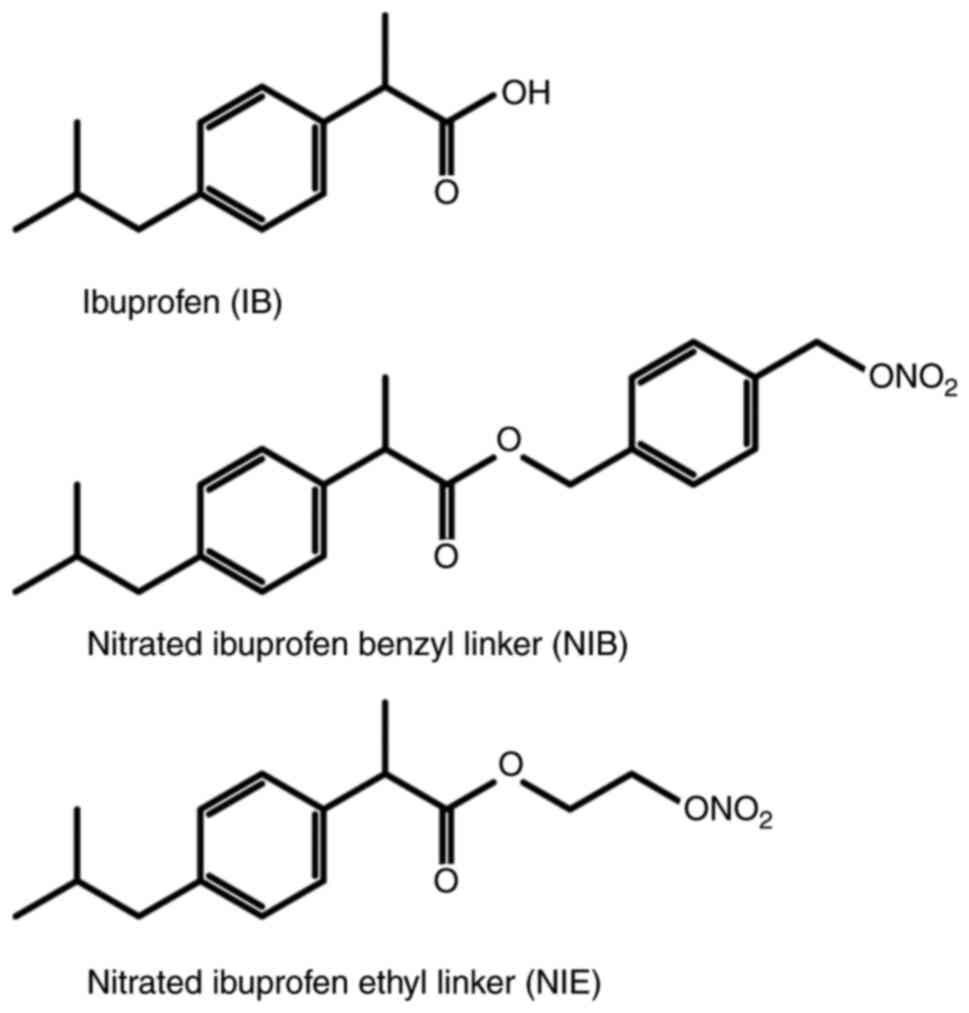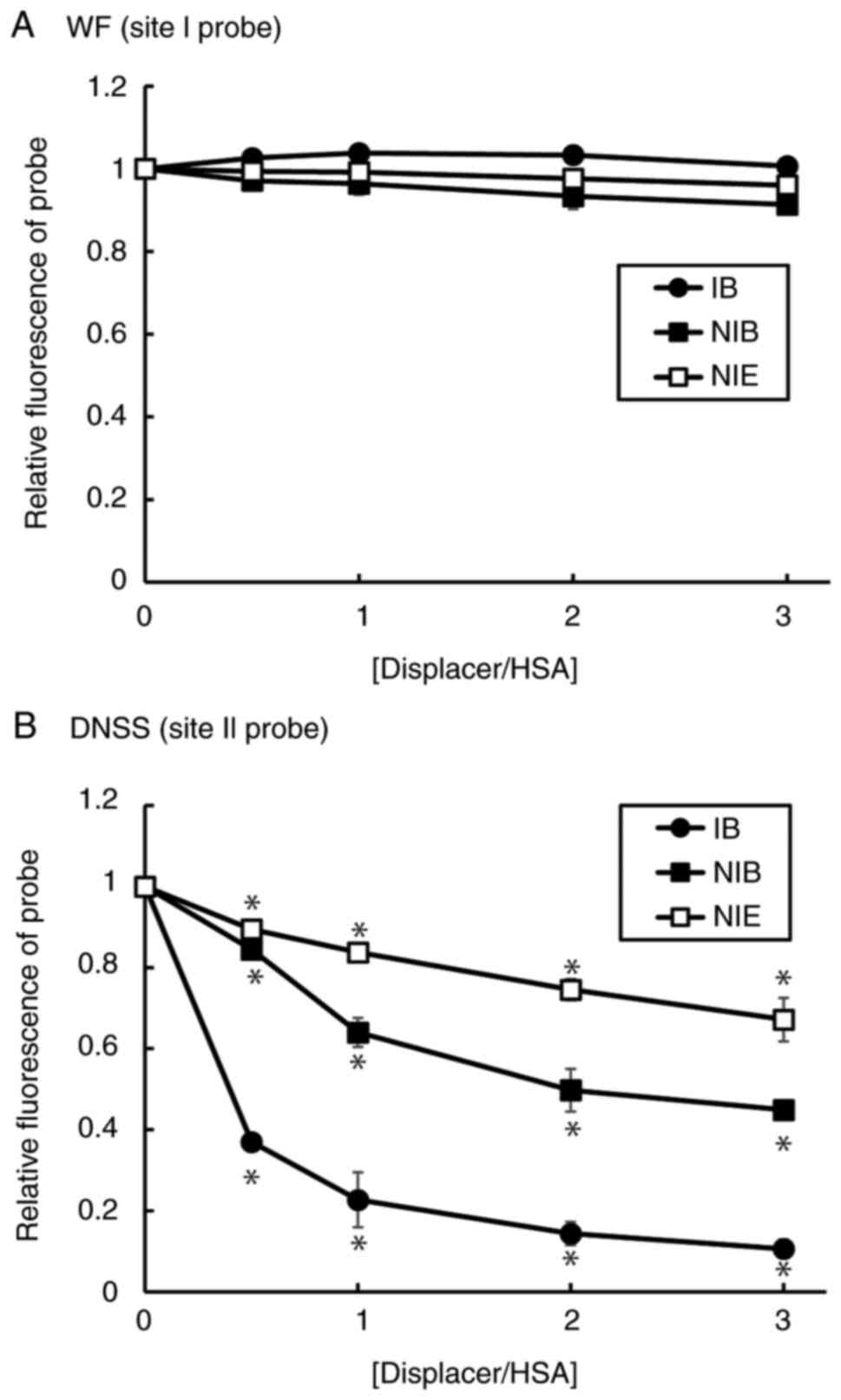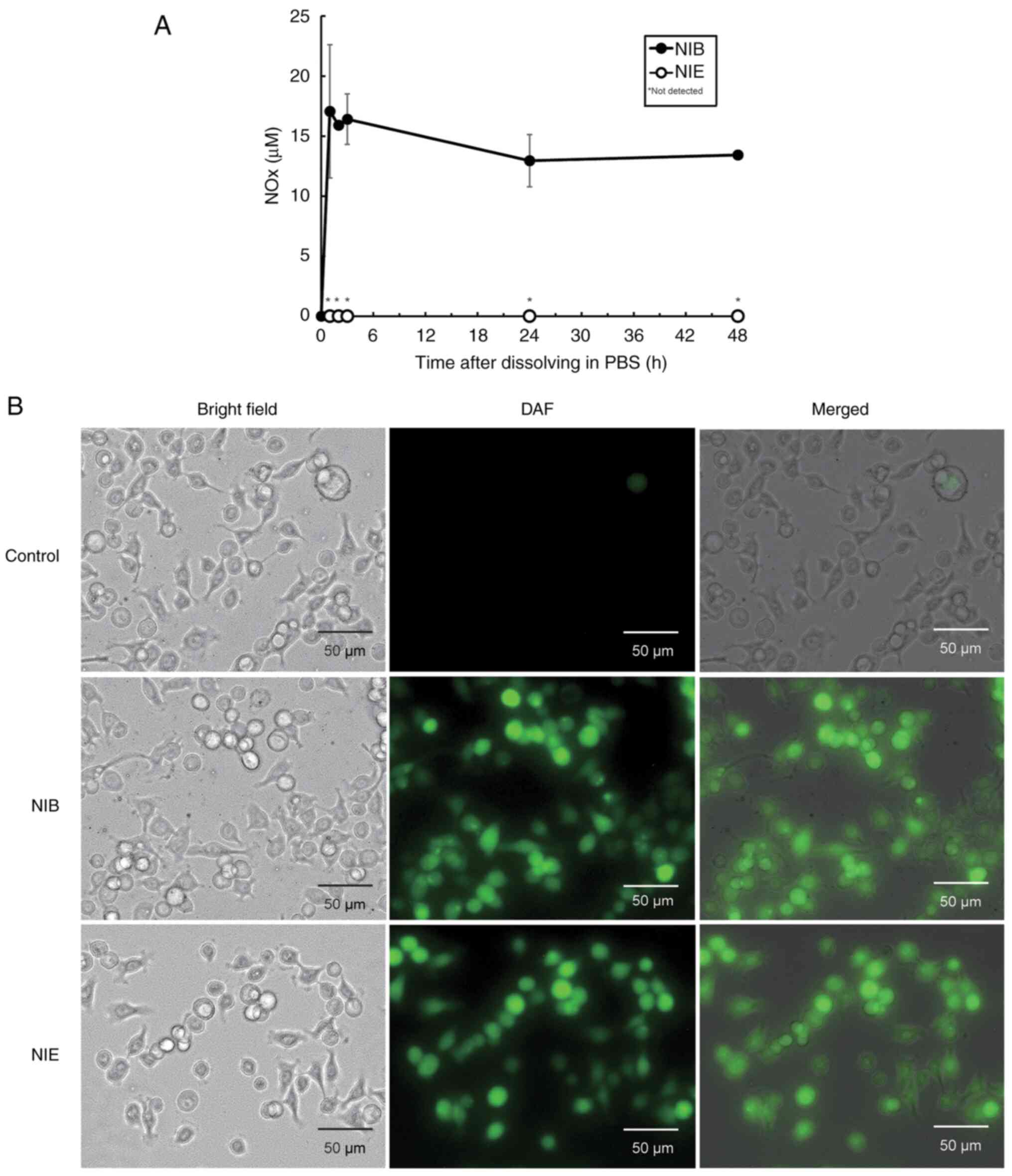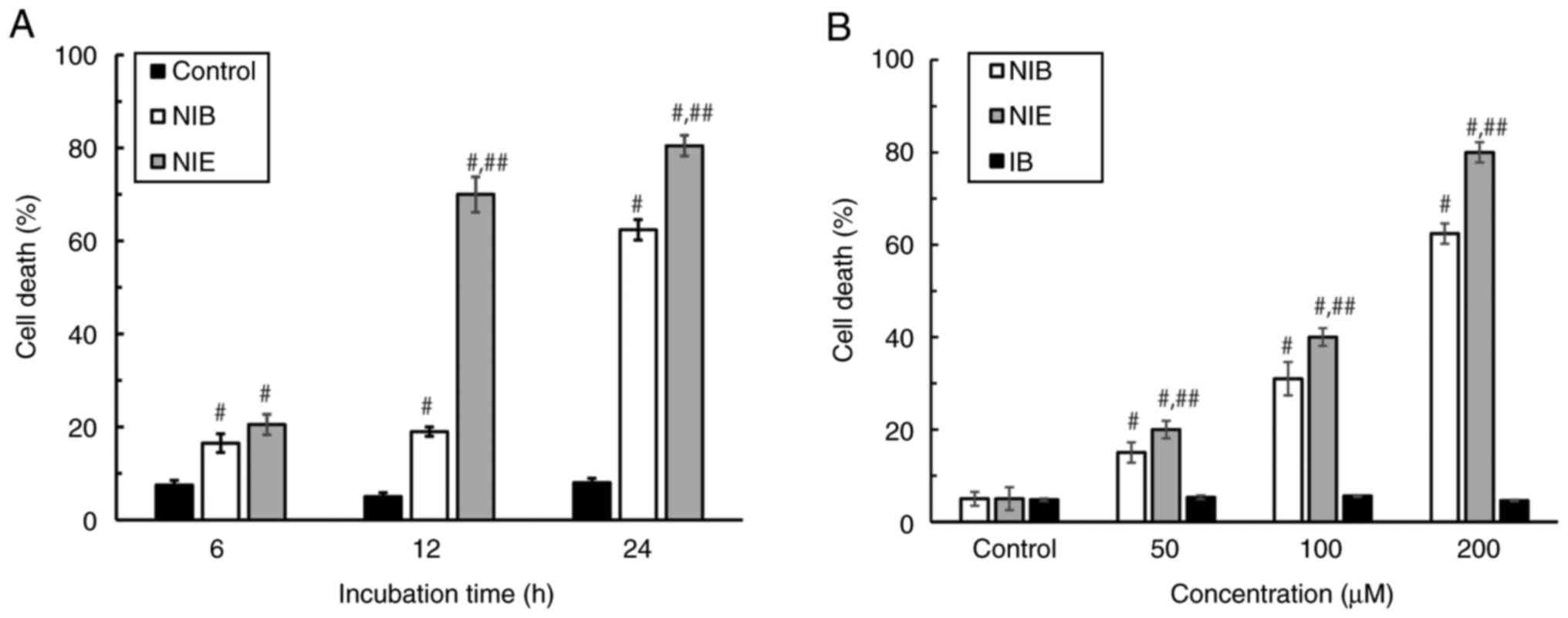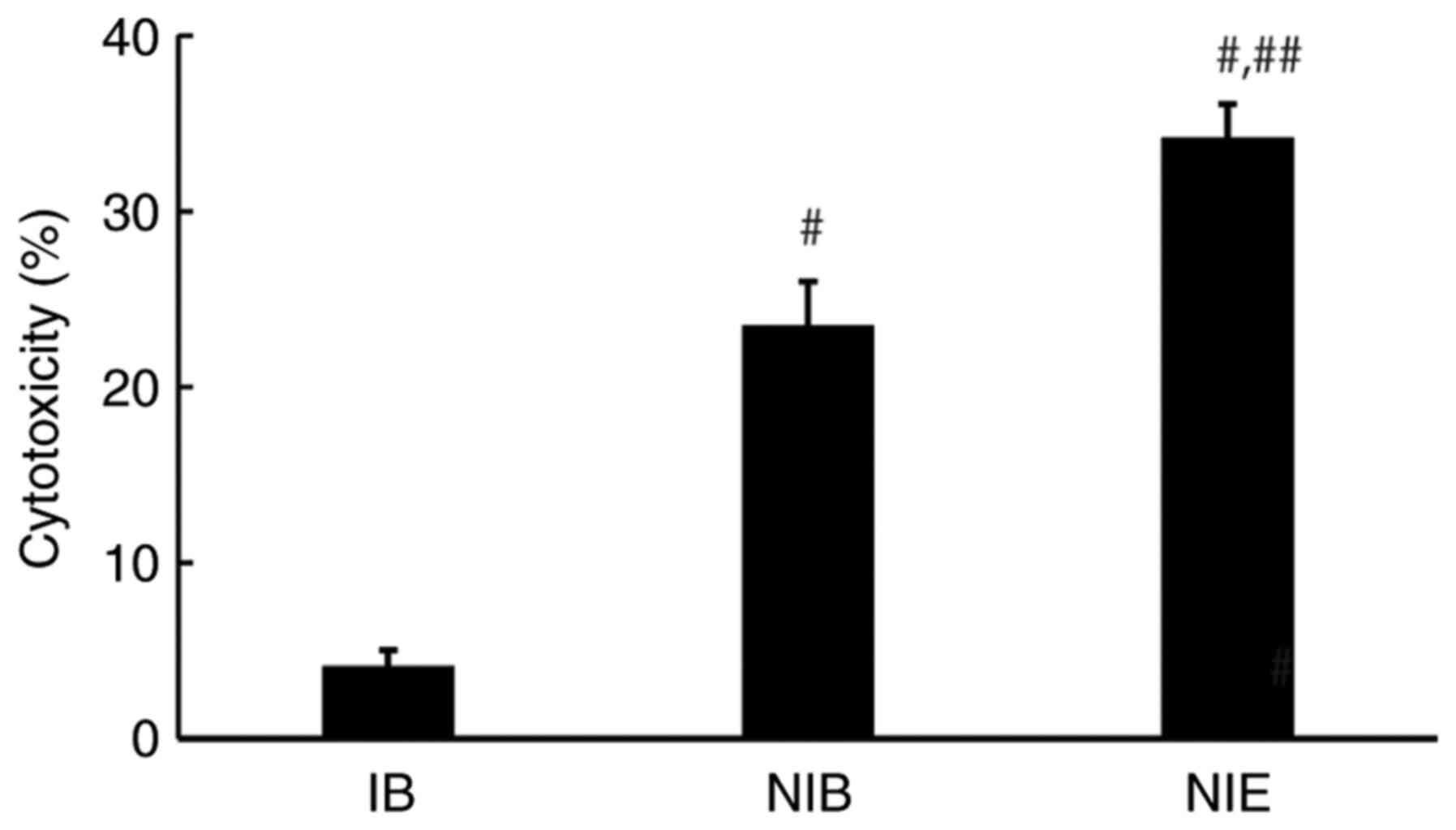|
1
|
Cancer Registry and Statistics: Cancer
Information Service. National Cancer Center, 2020 (Vital Statistics
of Japan). https://ganjoho.jp/en/professional/statistics/table_download.html.
|
|
2
|
Siegel RL, Miller KD, Fuchs HE and Jemal
A: Cancer statistics, 2021. CA Cancer J Clin. 71:7–33.
2021.PubMed/NCBI View Article : Google Scholar
|
|
3
|
Conroy T, Desseigne F, Ychou M, Bouché O,
Guimbaud R, Bécouarn Y, Adenis A, Raoul JL, Gourgou-Bourgade S, de
la Fouchardière C, et al: Folfirinox versus gemcitabine for
metastatic pancreatic cancer. N Engl J Med. 364:1817–1825.
2011.PubMed/NCBI View Article : Google Scholar
|
|
4
|
Von Hoff DD, Ervin T, Arena FP, Chiorean
EG, Infante J, Moore M, Seay T, Tjulandin SA, Ma WW, Saleh MN, et
al: Increased survival in pancreatic cancer with nab-paclitaxel
plus gemcitabine. N Engl J Med. 369:1691–1703. 2013.PubMed/NCBI View Article : Google Scholar
|
|
5
|
Michl P and Gress TM: Improving drug
delivery to pancreatic cancer: Breaching the stromal fortress by
targeting hyaluronic acid. Gut. 61:1377–1379. 2012.PubMed/NCBI View Article : Google Scholar
|
|
6
|
Provenzano PP, Cuevas C, Chang AE, Goel
VK, Von Hoff DD and Hingorani SR: Enzymatic targeting of the stroma
ablates physical barriers to treatment of pancreatic ductal
adenocarcinoma. Cancer Cell. 21:418–429. 2012.PubMed/NCBI View Article : Google Scholar
|
|
7
|
Ishima Y, Kragh-Hansen U, Maruyama T and
Otagiri M: Albumin as a nitric oxide-traffic protein:
Characterization, biochemistry and possible future therapeutic
applications. Drug Metab Pharmacokinet. 24:308–317. 2009.PubMed/NCBI View Article : Google Scholar
|
|
8
|
Estrada C, Gómez C, Martín C, Moncada S
and González C: Nitric oxide mediates tumor necrosis factor-alpha
cytotoxicity in endothelial cells. Biochem Biophys Res Commun.
186:475–482. 1992.PubMed/NCBI View Article : Google Scholar
|
|
9
|
Kashfi K, Rayyan Y, Qiao LL, Williams JL,
Chen J, Del Soldato P, Traganos F, Rigas B and Ryann Y: Nitric
oxide-donating nonsteroidal anti-inflammatory drugs inhibit the
growth of various cultured human cancer cells: Evidence of a tissue
type-independent effect. J Pharmacol Exp Ther. 303:1273–1282.
2002.PubMed/NCBI View Article : Google Scholar
|
|
10
|
Riganti C, Rolando B, Kopecka J, Campia I,
Chegaev K, Lazzarato L, Federico A, Fruttero R and Ghigo D:
Mitochondrial-targeting nitrooxy-doxorubicin: A new approach to
overcome drug resistance. Mol Pharm. 10:161–174. 2013.PubMed/NCBI View Article : Google Scholar
|
|
11
|
Islam W, Fang J, Imamura T, Etrych T, Subr
V, Ulbrich K and Maeda H: Augmentation of the enhanced permeability
and retention effect with nitric oxide-generating agents improves
the therapeutic effects of nanomedicines. Mol Cancer Ther.
17:2643–2653. 2018.PubMed/NCBI View Article : Google Scholar
|
|
12
|
Ishima Y, Chen D, Fang J, Maeda H, Minomo
A, Kragh-Hansen U, Kai T, Maruyama T and Otagiri M: S-Nitrosated
human serum albumin dimer is not only a novel anti-tumor drug but
also a potentiator for anti-tumor drugs with augmented EPR effects.
Bioconjug Chem. 23:264–271. 2012.PubMed/NCBI View Article : Google Scholar
|
|
13
|
Peters T: All about albumin: Biochemistry,
genetics, and medical application, acad. Press, Orlando, FL, pp42,
1966.
|
|
14
|
Whittingham JL, Havelund S and Jonassen I:
Crystal structure of a prolonged-acting insulin with
albumin-binding properties. Biochemistry. 36:2826–2831.
1997.PubMed/NCBI View Article : Google Scholar
|
|
15
|
Kurtzhals P, Havelund S, Jonassen I and
Markussen J: Effect of fatty acids and selected drugs on the
albumin binding of a long-acting, acylated insulin analogue. J
Pharm Sci. 86:1365–1368. 1997.PubMed/NCBI View Article : Google Scholar
|
|
16
|
Sisson EM: Liraglutide: Clinical
pharmacology and considerations for therapy. Pharmacotherapy.
31:896–911. 2011.PubMed/NCBI View Article : Google Scholar
|
|
17
|
Tiessen RG, Castaigne JP, Dreyfus JF,
Nemansky M, Kruizinga HH and van Vliet AA: Pharmacokinetics and
tolerability of a novel long-acting glucagon-like peptide-1 analog,
CJC-1131, in healthy and diabetic subjects. Int J Clin Pharmacol
Ther. 46:443–452. 2008.PubMed/NCBI View
Article : Google Scholar
|
|
18
|
Ishima Y, Maruyama T, Otagiri M, Chuang
VTG and Ishida T: The new delivery strategy of albumin carrier
utilizing the interaction with albumin receptors. Chem Pharm Bull
(Tokyo). 70:330–333. 2022.PubMed/NCBI View Article : Google Scholar
|
|
19
|
Rahman MH, Yamasaki K, Shin YH, Lin CC and
Otagiri M: Characterization of high affinity binding sites of
non-steroidal anti-inflammatory drugs with respect to site-specific
probes on human serum albumin. Biol Pharm Bull. 16:1169–1174.
1993.PubMed/NCBI View Article : Google Scholar
|
|
20
|
Theodosis-Nobelos P, Papagiouvanis G,
Pantelidou M, Kourounakis PN, Athanasekou C and Rekka EA: Design,
synthesis and study of nitrogen monoxide donors as potent
hypolipidaemic and anti-inflammatory agents. Molecules.
25(19)2019.PubMed/NCBI View Article : Google Scholar
|
|
21
|
Sakai T, Yamasaki K, Sako T, Kragh-Hansen
U, Suenaga A and Otagiri M: Interaction mechanism between indoxyl
sulfate, a typical uremic toxin bound to site II, and ligands bound
to site I of human serum albumin. Pharm Res. 18:520–524.
2001.PubMed/NCBI View Article : Google Scholar
|
|
22
|
Huang Z, Fu J and Zhang Y: Nitric oxide
donor-based cancer therapy: Advances and prospects. J Med Chem.
60:7617–7635. 2017.PubMed/NCBI View Article : Google Scholar
|
|
23
|
Saavedra JE, Shami PJ, Wang LY, Davies KM,
Booth MN, Citro ML and Keefer LK: Esterase-sensitive nitric oxide
donors of the diazeniumdiolate family: In vitro antileukemic
activity. J Med Chem. 43:261–269. 2000.PubMed/NCBI View Article : Google Scholar
|
|
24
|
Shi J, Gao W and Shao F: Pyroptosis:
Gasdermin-mediated programmed necrotic cell death. Trends Biochem
Sci. 42:245–254. 2017.PubMed/NCBI View Article : Google Scholar
|
|
25
|
Gao J, Liu X and Rigas B: Nitric
oxide-donating aspirin induces apoptosis in human colon cancer
cells through induction of oxidative stress. Proc Natl Acad Sci
USA. 102:17207–17212. 2005.PubMed/NCBI View Article : Google Scholar
|
|
26
|
Bonavida B, Khineche S, Huerta-Yepez S and
Garbán H: Therapeutic potential of nitric oxide in cancer. Drug
Resist Updat. 9:157–173. 2006.PubMed/NCBI View Article : Google Scholar
|
|
27
|
Bonavida B, Baritaki S, Huerta-Yepez S,
Vega MI, Jazirehi AR and Berenson J: Nitric oxide donors are a new
class of anti-cancer therapeutics for the reversal of resistance
and inhibition of metastasis. In: Nitric oxide (NO) and cancer:
Prognosis, prevention, and therapy. Bonavida B (ed). Springer, New
York, NY, pp459-477, 2010.
|















